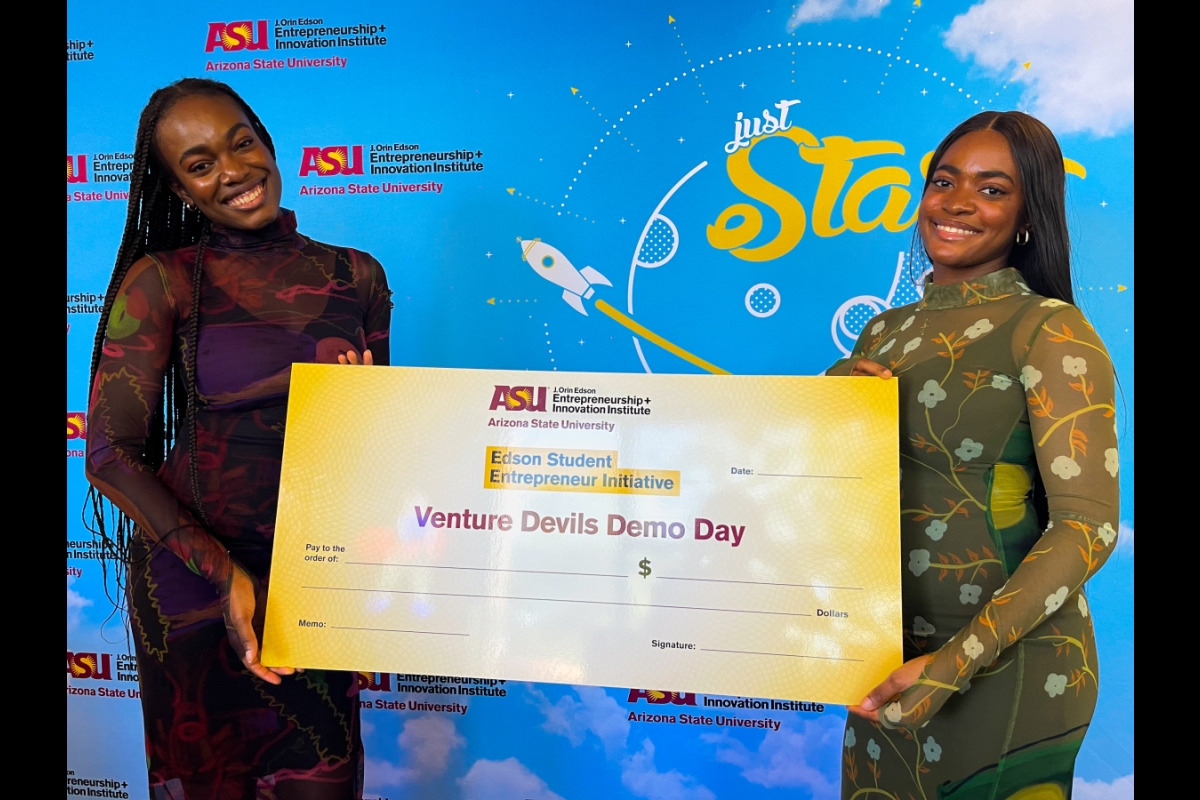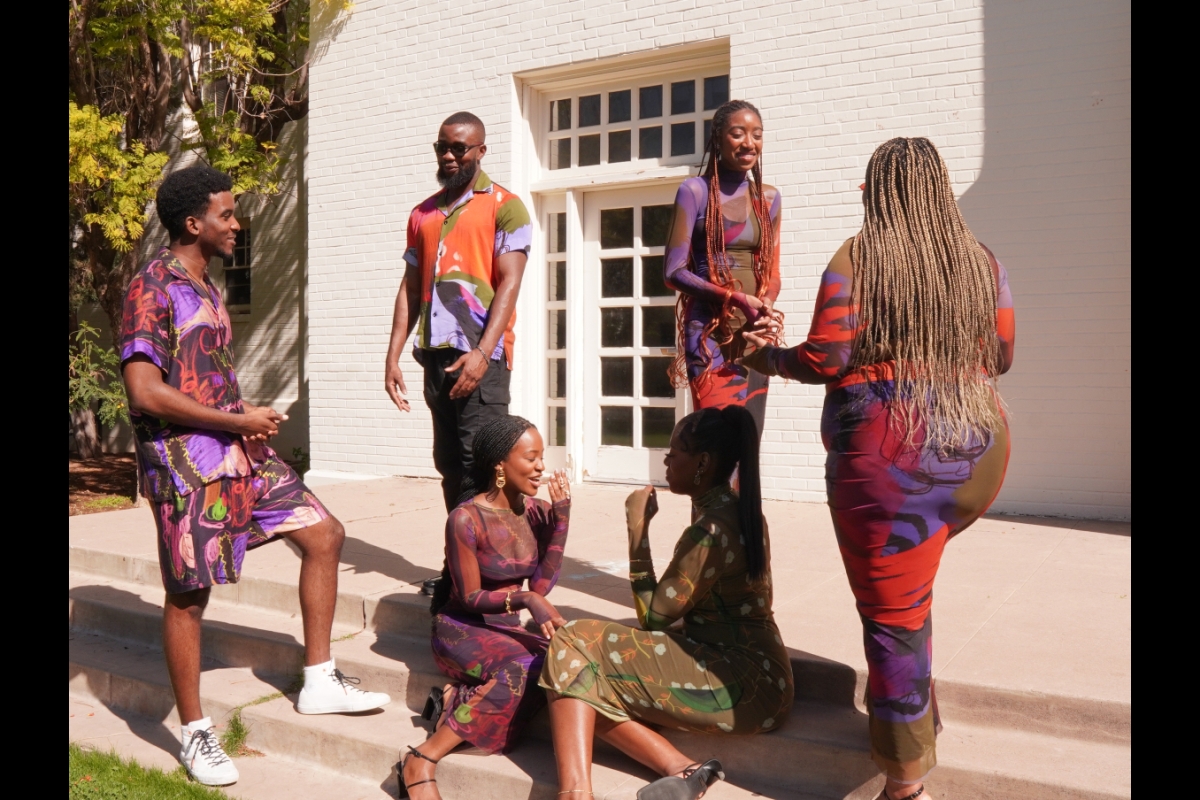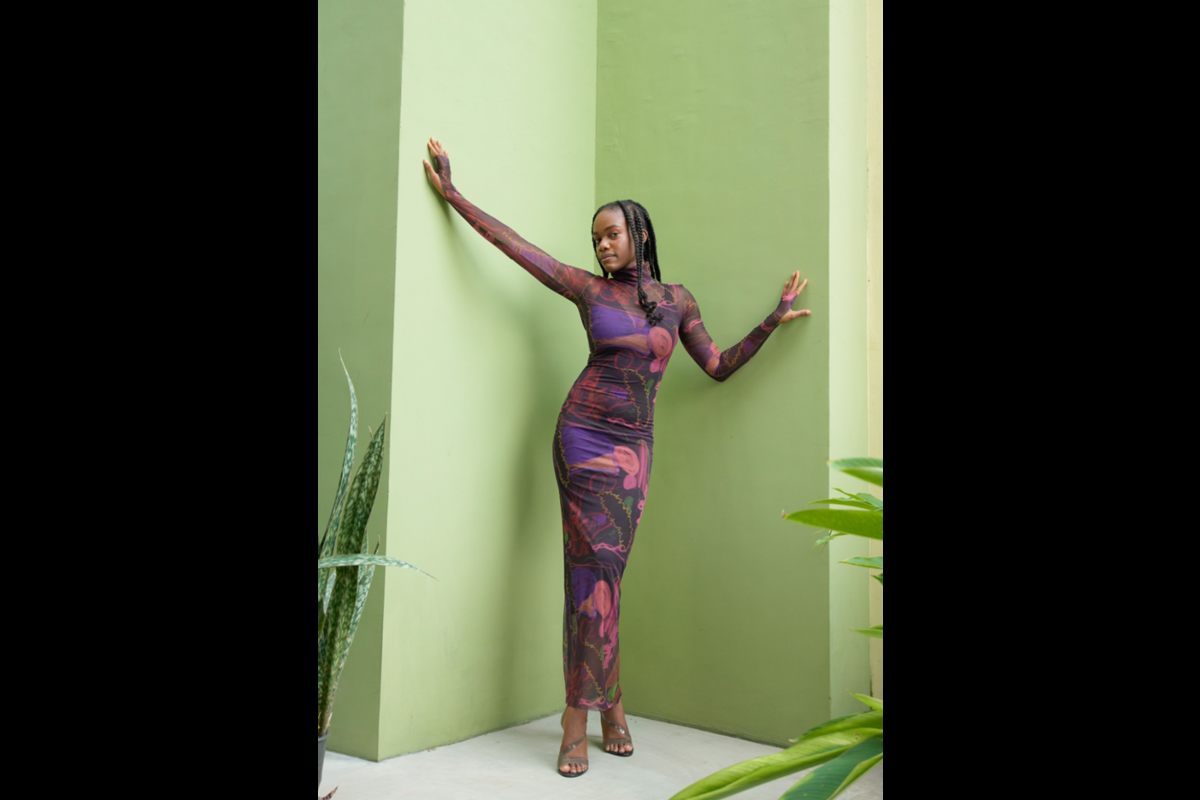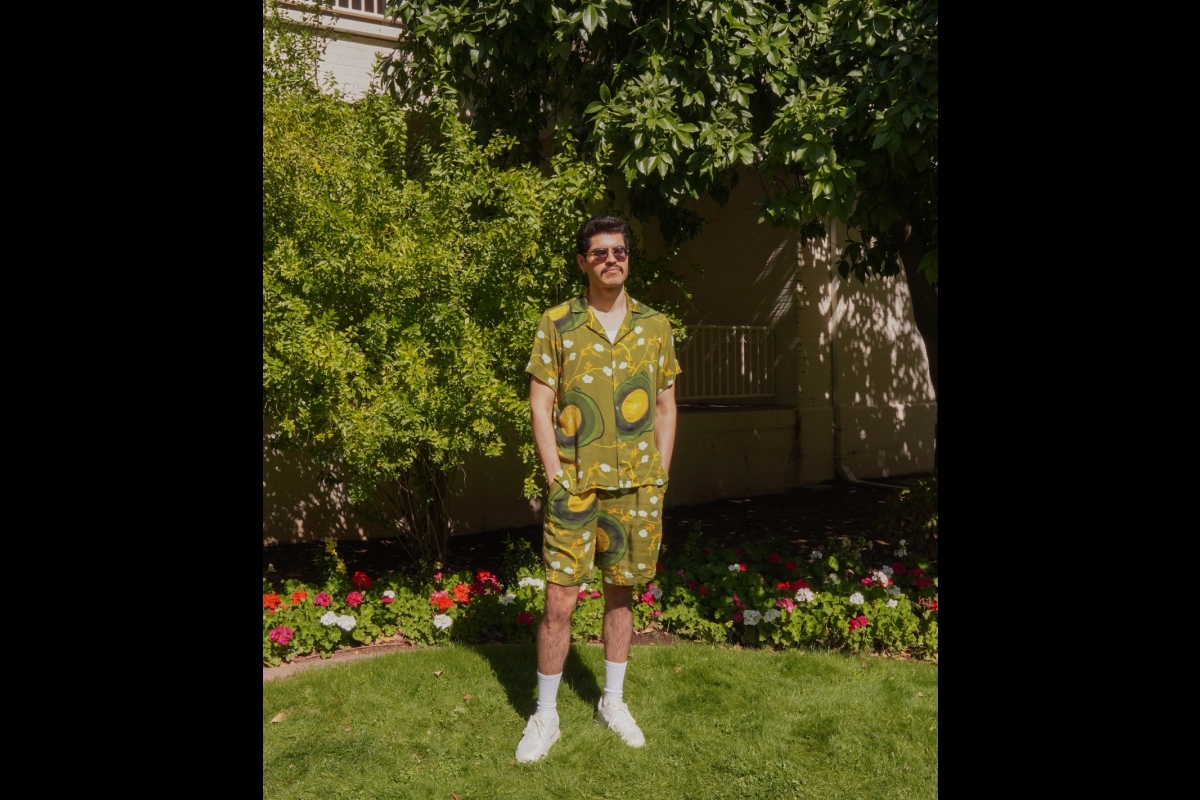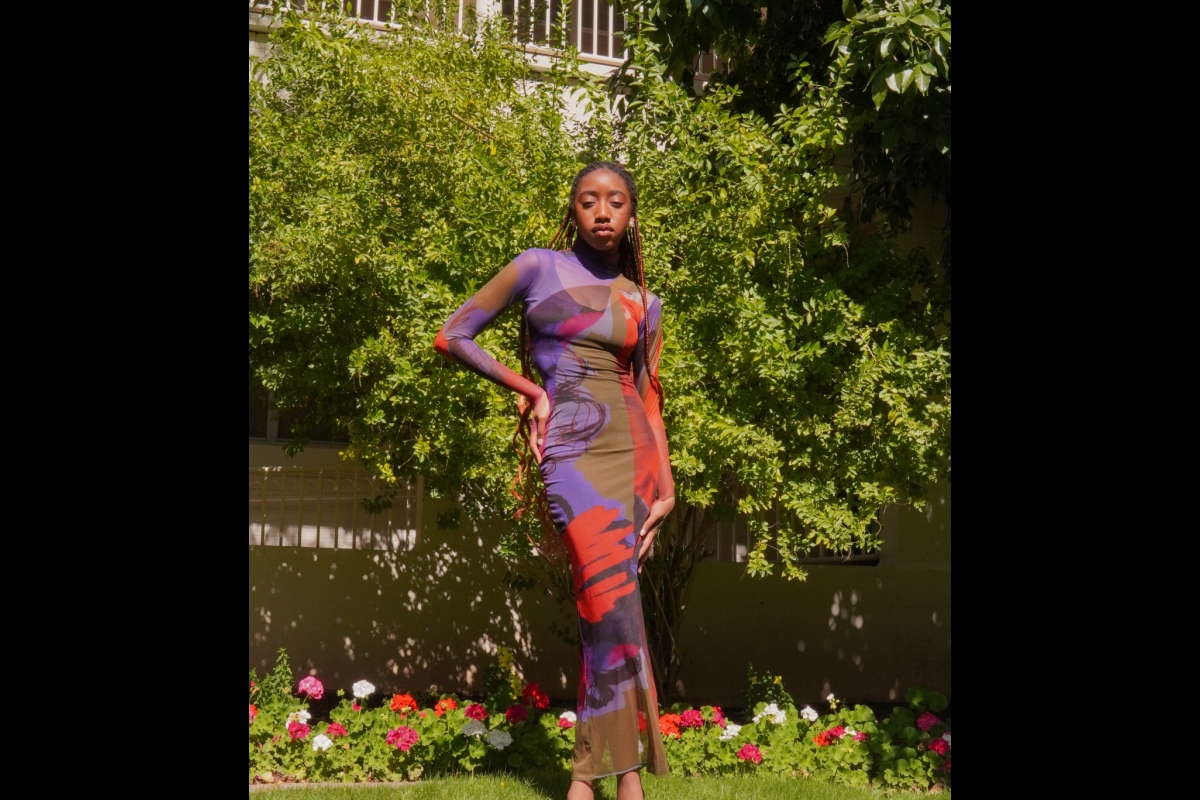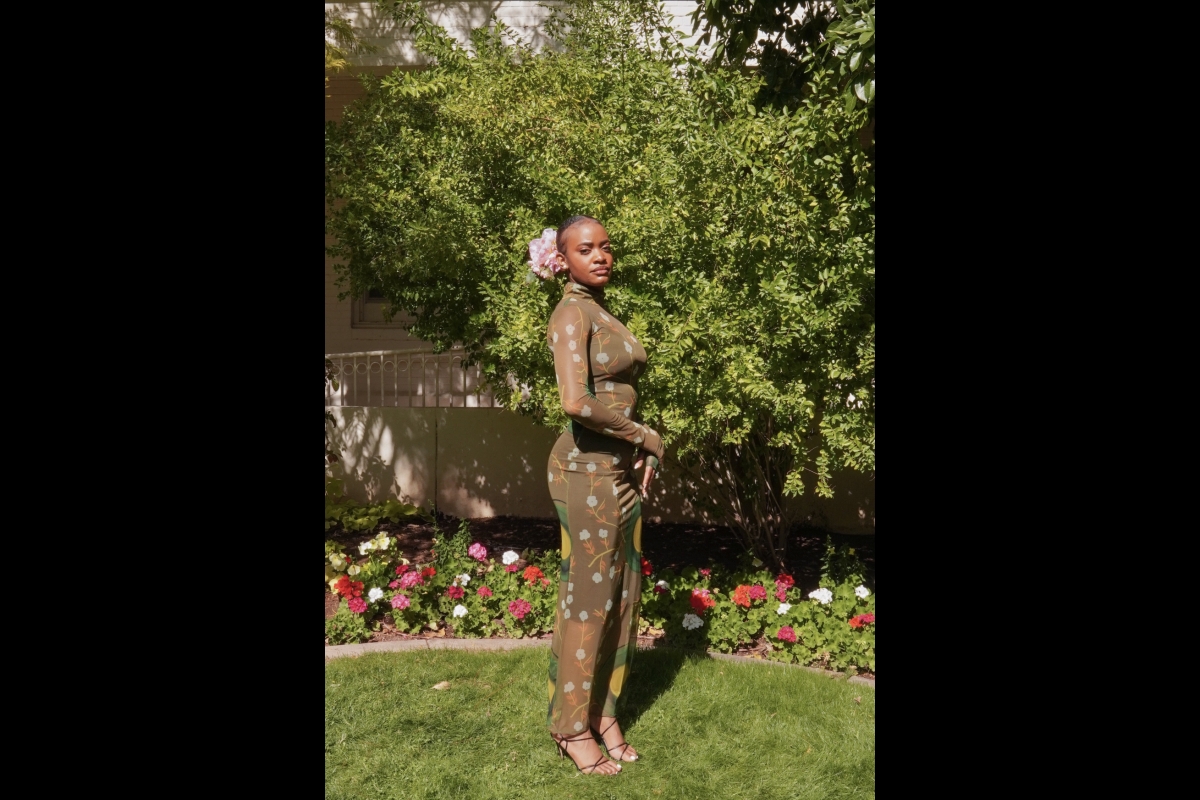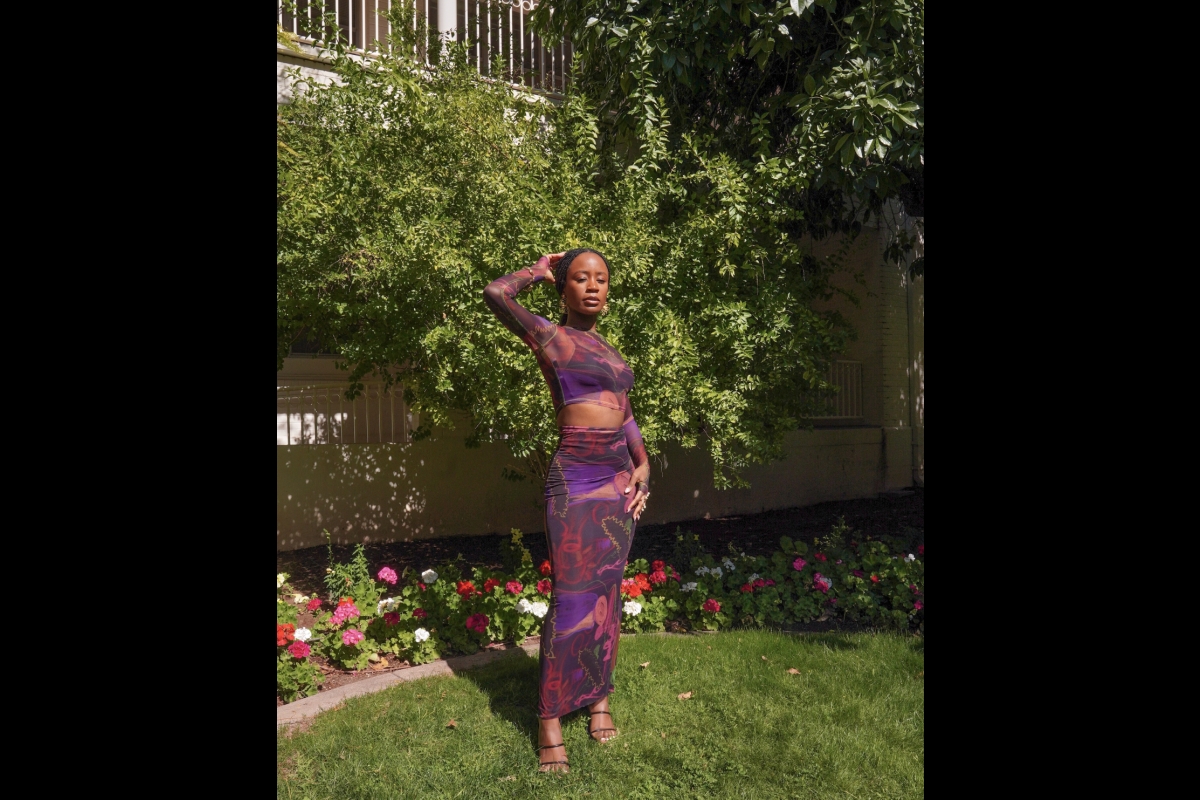Design student turns passion into a prize-winning fashion line
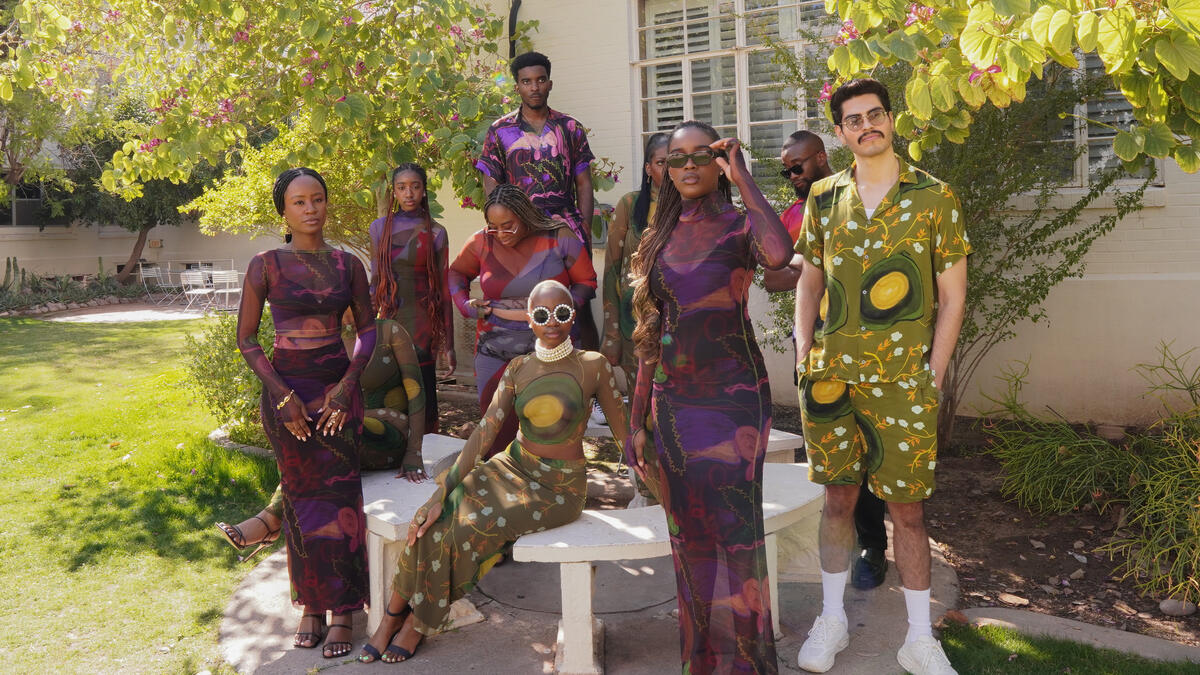
Models posing in Uzoma Ndulue's season one designs for her brand "Good Road Collection." Courtesy photo
Thanks to her success in combining a passion for fashion with industrial design expertise, graduate student Uzoma Ndulue recently emerged as one of the three large-prize winners at the biannual Demo Day, hosted by ASU’s Venture Devils.
Out of 73 ambitious ventures pitched to more than 300 in-person and virtual attendees, the industrial design graduate student won $25,000 to continue funding her fashion line, “Good Road Collection."
“With this money, I’ll be able to be more strategic with my sales approach and reach a wider audience,” Ndulue says.
Here, she talks about the connection between industrial design and fashion and how she incorporated her fashion line into her studies, and gives advice to those looking to participate in competitions like Demo Day.
Question: How did you first become interested in industrial design?
Answer: Education has always been a top priority in my family, so I knew I would eventually pursue a master's degree. However, I needed to choose a field that would not only align with my passions but also provide practical skills for the corporate world. So I came upon design and the different ways you could use it.
I was initially unfamiliar with industrial design, so I applied to the architecture program instead. Right before starting the program, I came across an interview with a shoe designer, who mentioned studying industrial design. It immediately caught my attention. I researched what industrial design was, and it clicked — this is exactly what I wanted to do. I switched to the industrial design program, and everything started to make sense.
Q: How do industrial design and fashion connect?
A: My understanding of industrial design is that it’s anything that can be used for commercial use, which covers the design of all products. Industrial design is not fashion design, per se. But the skills you learn from the industrial design process — from ideation to conception, researching and prototyping — are useful skills you can apply to anything.
... My studio project this semester focused on fashion. This project got my professor and I thinking about broadening the industrial design program to have a different curriculum — one that's more open to people's industry desires, like fashion or marketing. The idea is to take what you learn about industrial design and apply it to the specific industry you want to go into.
Using that industrial design approach for fashion has given me strength, and in some ways a slight advantage. Now I am using an industrial design perspective and designing things centered around what people need and being intentional from the start. At the end of the day, both of these fields are all about creativity and bringing ideas to life from your imagination.
Q: How did you hear about Demo Day?
A: At the beginning of the semester I learned about Venture Devils during a welcome event for industrial designers organized by our program head, Luis Angarita. Angarita worked with Venture Devils representatives to give a presentation explaining what Venture Devils is all about, who was applicable (all students, faculty, alumni and staff are eligible), the dates to apply and encouraging everyone to participate.
I was unsure about applying since I’d already started my fashion brand before coming to school and I’m an international student. Being an international student, sometimes certain opportunities are not be open to me. Before going through the application process, I wanted to be sure my work would be accepted. So I reached out to the two representatives who came before and asked them my questions, showing them my fashion brand as well. They reassured me that international students could apply and encouraged me to go ahead with my application.
The entire application process took around a month. Throughout this time, I received immense support from Angarita, Craig Hedges, John Takamura and others. They guided me through every step, answering any questions I had and providing all the support they could.
Q: What inspired you to do a fashion line?
A: I had never thought about making clothes; I just enjoyed traditional art, like painting, as a hobby. However, after graduating with my undergraduate degree, I wanted to lean into the creative industry more. I'm not entirely sure how or why, but the idea of blending my traditional art with fashion suddenly captivated me. I had this recurring vision of people wearing fabrics and clothing with my designs on them.
When I returned home to Nigeria, knowing I'd be there for at least a year, I thought to myself, why not just go for it and start this process? It felt very risky doing this because I’m someone who likes to do things well. Before starting, I shifted my mindset to view this as an experiment, thinking let's see what happens. I created a few samples, found a manufacturer, and before I knew it — mass production was underway! I collaborated with a tailor to sew my fabric into actual garments, and just like that, my designs were out in the world.
Q: What are your plans for the prize money?
A: The plan is to use the prize money to start producing my second collection. I've already finalized the designs and received the samples, but I've been holding off on manufacturing due to a lack of funds. But now, after receiving the funding, I'm ready to start the process.
A portion of the money will go towards increasing inventory for my first collection as well. The rest will go towards marketing efforts. I'm planning to really push the brand's presence on digital platforms. Before this win, my sales were primarily through in-person events or exhibitions.
Q: What would you say to other design students who aren’t sure they should enter competitions like Demo Day?
A: One of the main lessons I’ve learned from this last academic year is that whatever is in your chest, whatever keeps popping up in your mind, you owe it to yourself to try it at least once. We often hold ourselves back from trying new things out of fear of failure. But you have to be willing to step out of your comfort zone and embrace not having all the answers.
When I first started my fashion line, I had zero knowledge of the fashion industry. It’s only now that things are slowly starting to come together for me. I took the skills I knew I had and collaborated with others who had expertise in the areas where I needed help. The key is to just go for it, and do what you need to do. It’s ok if you fail; at least you did something.
More Business and entrepreneurship

ASU’s business school offers new, innovative undergraduate degrees
In line with rapid innovations in business and technology, the W. P. Carey School of Business at Arizona State University is launching several new programs for students seeking to make their mark in…
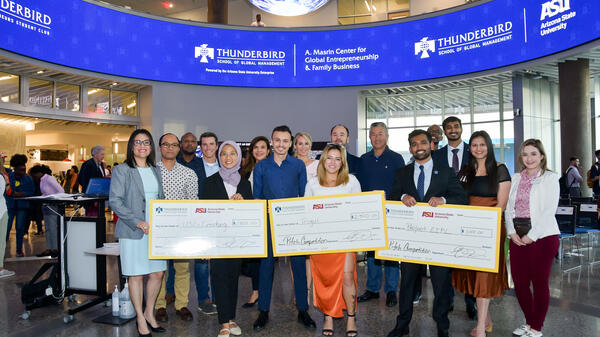
Thunderbird’s annual Pitch Competition fosters entrepreneurialism
The A. Masrin Center for Global Entrepreneurship and Family Business at Thunderbird School of Global Management at Arizona State University is leading the way in preparing students for modern…

Thunderbird at ASU ranked No. 1 by QS International Trade Rankings for second consecutive year
The Thunderbird School of Global Management at Arizona State University has secured its position as the world leader in international trade for the second consecutive year, as declared by…
